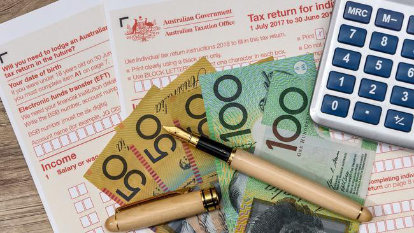The ATO installed new IT capability in 2010 and every year since we’ve seen it add another string-to-its-bow in terms of its capability to source data and match that data to taxpayers.
During the early years of the ATO’s “new” capability, progress was relatively slow; however, in recent years the rapid progress of the ATO’s “matching” capability is astonishing.
There’s not much, if anything, the ATO doesn’t have covered!
For the 2020-21 Tax Year the Australian Taxation Office has revealed scrutiny of individual’s tax returns will include work-related expenses, rental deductions and capital gains from cryptocurrency, property and shares.
Here are some key points:
Don’t lodge too early!
The ATO has also advised taxpayers not to rush to file their tax return in early July, even if they’re expecting some bonus cash to boost their bank balance.
An ATO spokesperson says:
“We often see lots of mistakes in early July as people rush to get their tax returns done and forget to include income from banks, dividends from shares, sharing economy platforms and cryptocurrency exchange.”
This information will be available for inclusion in your tax return by the end of July. To avoid mistakes and refund delays, it’s best to wait for this information to be “finalised”. If you want to lodge earlier, you must take care to manually add all your income.
Working from home!
With a lot of people working from home this financial year due to the pandemic, the ATO has advised a temporary shortcut method for claiming working from home expenses will be available.
However, people must have a record of the number of hours they worked from home like using a timesheet.
Golden Rules for claiming work-related deductions!
 There are three golden rules when claiming work-related expenses:
There are three golden rules when claiming work-related expenses:
- You must have spent the money and not been reimbursed.
- The expenses must directly relate to earning your income and must not be private in nature.
- You must have a record to prove it, such as a receipt.
Data matching motor vehicle registrations!
The ATO has done an enormous data-matching campaign working with state motor vehicle registries to gather data on company owned vehicles as well as individual’s vehicles.
For individuals, in part it means targeting the black economy, where people may not be declaring all income, or they may be getting income from less scrupulous circumstances like illegal activity……………. and they’re buying $200,000 to $300,000 cars.
 The ATO has data to show what vehicles are registered and what someone’s income is and they can question how a taxpayer can service that vehicle and where their income came from.
The ATO has data to show what vehicles are registered and what someone’s income is and they can question how a taxpayer can service that vehicle and where their income came from.
From a company point of view, it’s about the ATO catching people where they might have a family car with ownership in the company name, which attracts fringe benefit tax; but the company isn’t declaring “private use” for fringe benefits. Unless a company-owned passenger vehicle is garaged at the company’s business premises overnight and at weekends, it’s probable “private use” is involved; consequently, you must maintain appropriate logbooks to prove business-use.
Furthermore, a taxpayer can only claim a “cents per kilometre” deduction for a vehicle he/she owns. With data-matching the ATO can match a “cents per kilometre claim” to vehicle ownership; so, if there’s “no match” and you claimed a deduction you can expect a letter from the ATO.
A spokesperson for the ATO said some variation of the motor vehicle data matching program has been running for the past 16 years. It targets new registrations and transfers of ownership if the purchase price or market value is greater than $10,000.
Revenue target down!
The ATO’s revenue target is down $1.3 billion since the pandemic and debt has gone from $45 billion to $53 billion since the pandemic started.
Undoubtedly the ATO needs to claw this gap back through intensified debt collection and audit functions.
- Superannuation Guarantee Levy!
The ATO will be following up people with superannuation guarantee obligations to make sure all employee superannuation payments are paid on time and in full. - Avoid Late Lodgements!
The ATO will be less lenient on late lodgement of business statement activities and income tax returns; therefore, small business might feel “vulnerable”. - Taxable Payments Annual Report and the Shadow Economy!
The ATO will introduce a nudge approach to remind contractors to include all income reported in their Payers’ Taxable Payments Annual Reports in their tax return, whilst also continuing its focus on the “shadow economy”.
The “shadow economy” includes paying for work cash in hand to avoid obligations, underpayment of wages, not reporting income, sham contracting, money laundering, unregulated gambling and counterfeit goods. - Being reckless when lodging a Tax Return!
As for mistakes in your tax return, the ATO has warned it will crack down if it’s found to be deliberate (i.e. reckless). The ATO will apply penalties against those deliberately trying to get away with doing the wrong thing.
